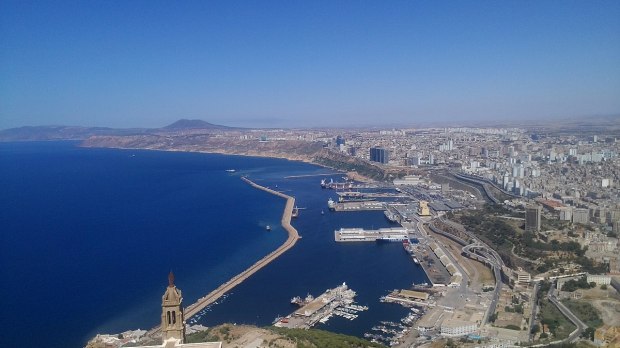Friday 30 September 2022
~
1. Caritas Algeria closes its doors at the request of the authorities
2. Clash between the President of the German Episcopate and Cardinal Koch
3. The Vatican’s new Minister of Culture and Education outlines his vision
4. Old age is not a defeat, says Vatican official
5. Churches’ “gratitude” to Jordan’s King
~
1Caritas Algeria closes its doors at the request of the authorities
The Catholic Church in Algeria has issued a statement announcing the “complete and definitive” closure of its Caritas branch in the country as of October 1. This painful decision, taken at the request of the Algerian authorities, means the dismissal of staff and the end of charitable services to thousands of disadvantaged people. Nevertheless, according to Father Cesare Baldi, priest of the Diocese of Novara in Italy and director of Caritas Algeria from 2009 to 2019, the tensions with the public authorities can still be overcome and resolved through dialogue. Specifying that this request from the authorities “is not a gesture of persecution towards the Catholic Church,” the Italian priest argues that bureaucratic factors “may have increased tensions and misunderstandings” with the institutions. “It is important to maintain a level of attention and sensitivity in countries where there is no significant Christian tradition,” he said, hoping that dialogue will help clarify contentious issues. The Catholic community in Algeria, which numbers about 5,000 faithful in four dioceses, is mainly made up of foreign workers, especially from the oil sector, and young students from sub-Saharan Africa, attracted by scholarships offered by local universities. The dioceses of Algiers, Oran, and Constantine are located on the Mediterranean coast. The diocese of Laghouat, on the other hand, is located in the Sahara desert and has only a few dozen baptized members, who keep alive the spiritual legacy of Charles de Foucauld, who was canonized by Pope Francis on May 15. The Catholic community in Algeria, which also includes local converts, had received a lot of attention on the occasion of the beatification of Christian religious martyrs of the civil war of the 1990s on December 8, 2018 in Oran. Bishop Pierre Claverie, the Bishop of Oran murdered in 1996, as well as the seven monks of Tibhirine abducted the same year, were among the newly beatified. However, after the youth protest movement and President Abdelaziz Bouteflika’s renunciation of a new mandate in 2019, the regime has hardened and hopes for change and freedom have not yet been translated into political action. Catholics are also paying the consequences of evangelical proselytizing, particularly active in Kabylia, to which the regime is responding with retaliatory measures affecting all Christian communities.
SIR, Italian
2Clash between the President of the German Episcopate and Cardinal Koch
A new storm has erupted in the German-speaking Catholic world. Cardinal Kurt Koch, Pope Francis’ ‘minister of ecumenism,’ has provoked the indignation of the President of the German Episcopal Conference, Bishop Georg Bätzing, after an interview given to the German weekly Die Tagespost. The Swiss Cardinal said he found it shocking that the German synod was talking about “new sources of revelation.” He recalled that the “German Christians,” a Christian movement affiliated with Nazism, had made the same claim in the 1930s. Cardinal Koch recalled how the Confessing Church, a Protestant movement, had opposed this claim in the 1934 Barmen Theological Declaration. This document, he explained citing its first thesis, explicitly rejected “the false doctrine that the Church can and must be a source of proclamation apart from and in addition to the Word of God alone” and could then “recognize powers, forms and truths as the revelation of God.” Archbishop Bätzing took this statement very badly and demanded that the Cardinal “make a public apology,” threatening to file an “official complaint” with Pope Francis if he did not. He attacked the Prefect of the Dicastery for Promoting Christian Unity, accusing him of trying to delegitimize the German synodal path. The Swiss Cardinal responded by saying that he would not withdraw his statement, considering that he had “not compared the synodal way to Nazi ideology” and denying that he had any intention of doing so. He explained that he wanted to recall the importance of the Barmen Theological Declaration, a text on which he often works, being ecumenical in nature. The Cardinal also apologized to those who felt “hurt,” assuring that was not his intention.
CNA Deutsch, German
3. The Vatican’s new Minister of Culture and Education outlines his vision
In an interview granted to the Spanish media outlet Vida Nueva, Cardinal Tolentino, the new Prefect of the Dicastery for Culture and Education, believes that his role is first of all a question of giving “an identity” to the new structure created by the new Apostolic Constitution. He also said that the religious crisis being lived today is explained by “a disaffection, a distance, an unavailability to being surprised, to being moved before God.”
Vida Nueva, Spanish
4. Old age is not a defeat, says Vatican official
Archbishop Vincenzo Paglia, president of the Pontifical Academy for Life, looks back on Pope Francis’ catechesis on old age and considers it “a magisterium of wisdom.”
L’Osservatore Romano, Italian
5. Churches’ “gratitude” to Jordan’s King
Terre Sainte magazine reports on the support shown by the Patriarchs and heads of the Churches of Jerusalem to King Abdullah II after his speech at the UN.
Terre sainte, French

